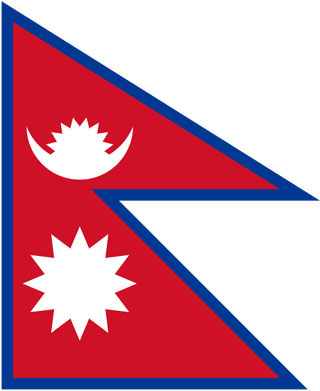Two years after peace pact, victims yet await justice
 Kathmandu - As Nepal marks the second anniversary of the end of civil war, there are yet painful reminders of the bitter conflict that left thousands of people dead and missing.
Kathmandu - As Nepal marks the second anniversary of the end of civil war, there are yet painful reminders of the bitter conflict that left thousands of people dead and missing.
For many people who lost their loved ones in the fighting or were driven from their homes, their struggle for justice continues.
"It has been two years since the government and the Maoists signed a peace deal, but in reality, life hasn't changed that much for us," said Ram Bahadur Karki, who fled his home in eastern Nepal with his family after Maoist rebels accused him of supporting the government.
"We sought shelter in Kathmandu four years ago and since then, it has been a challenge everyday to make ends meet," Karki said.
Karki had a farm and a house in Bhojpur district in eastern Nepal before his flight. He is not sure if he will ever get them back. More than 700 people who were forced to flee their homes regularly meet in Kathmandu to organize their pressure campaign for return of property seized by the Maoists.
But they admit that hopes of returning to their villages and getting back their properties are fading by the day.
"The government must ensure that the displaced people are allowed to return home to their villages with full security guarantee and the return of their properties," said Rameshwar Nepal, director of Amnesty International Nepal office.
"The government and the Maoists agreed to return seized property and allow people to return to their villages while signing the comprehensive peace agreement. But it appears not to have been implemented," Nepal said.
According to estimates, nearly 200,000 Nepalese were driven from their homes either by Maoists or threats by government security forces.
The United Nations Office of the High Commissioner for Human Rights in Nepal said local level Maoist cadres were preventing the displaced people from returning.
"Internally displaced people trying to return home have been chased away, and in some cases, beaten up by local Maoist cadres and in other cases made to appear before the Maoist "people's courts," the UN office said.
The situation is equally dire for relatives of victims who disappeared during the decade-long insurgency.
The International Committee of the Red Cross says over 800 people are listed as missing, and that majority of the forced disappearances were carried out the state security forces.
Last year, ICRC launched an appeal for information on the missing, but little has been done to either find them or take action against security personnel or Maoists responsible for the disappearances.
"The government still hasn't formed the Truth and Reconciliation Committee which would have investigated the disappearances along with other issues," Nepal said. "We are still calling for the formation of a commission that has real power, and will be able to effectively give justice to the people."
The Maoists, who waged a brutal guerrilla war against the state, are now leading the government.
"We are committed to finding the whereabouts of the missing people," Minister for Information Krishna Bahadur Mahara said. "We have already initiated the process to form a commission to investigate disappearances and things will move ahead now."
Despite assurances from the government, family members remain sceptical.
"I have sought information about my son for years and received no word about his whereabouts from the government," Chhiri Maya Ghale said.
Her son Ujjal was arrested by security forces in Myagdi in western Nepal in May 2002, and was never seen since.
Maoists were also accused of widespread human rights violations during the conflict, and human rights organizations have accused political parties of trying to protect their own.
"If Nepal wants to reconcile with its past, then the politicians must allow the law to take its course, even if it mean actions is taken against their cadres," Amnesty's Nepal said. "Impunity must not be tolerated." (dpa)